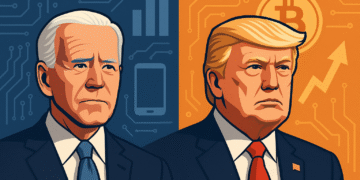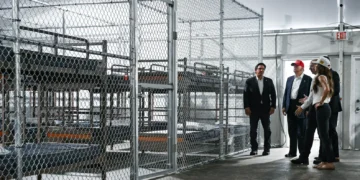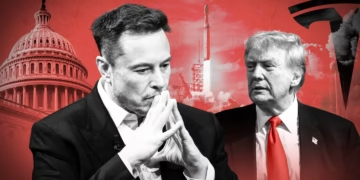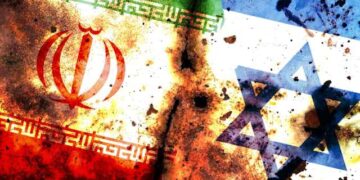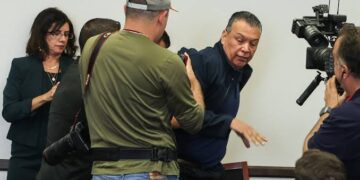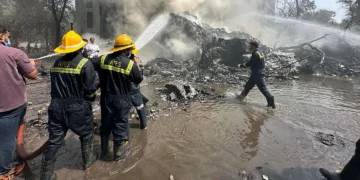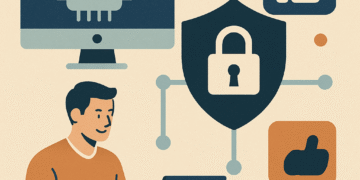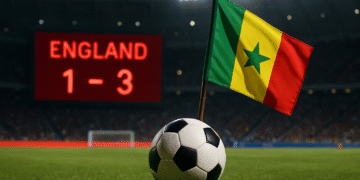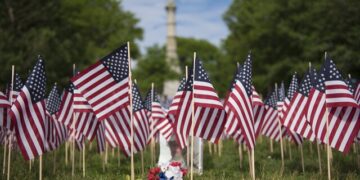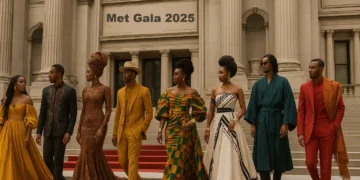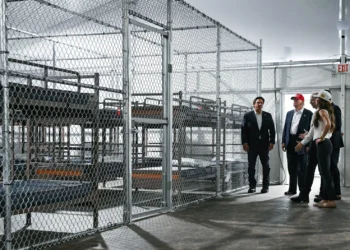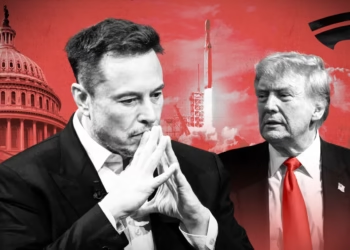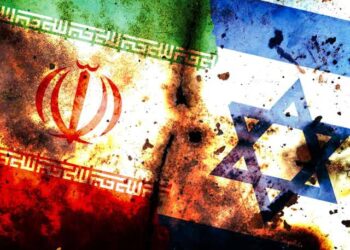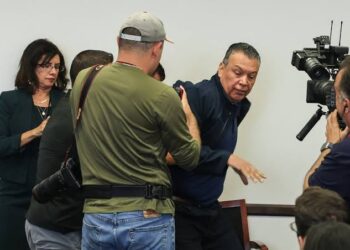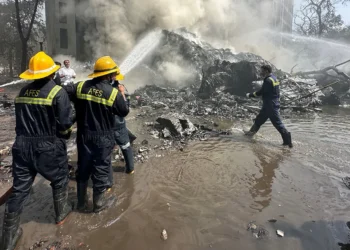Ramona Sarsgaard, the daughter of renowned actors Maggie Gyllenhaal and Peter Sarsgaard, was arrested during a chaotic anti-Israel protest at Columbia University. The protests, which drew widespread attention, were part of a larger wave of demonstrations across the United States, including at the University of Austin, advocating for Palestine.

The arrest highlights the intense activism surrounding the Israel-Palestine conflict, with many students and activists taking to the streets to voice their support for Palestine. The protests at Columbia University were marked by clashes between protesters and law enforcement, leading to multiple arrests.
Key Takeaways
- Ramona Sarsgaard, daughter of Maggie Gyllenhaal and Peter Sarsgaard, was arrested during Columbia University protests.
- The protests were part of a larger movement advocating for Palestine.
- Demonstrations were not limited to Columbia University but were seen across the US, including at the University of Austin.
- The protests highlighted the intense activism and divisions surrounding the Israel-Palestine conflict.
- Law enforcement clashed with protesters, resulting in multiple arrests.
Breaking News: Ramona Sarsgaard Detained During Columbia Protests
In a shocking turn of events, Ramona Sarsgaard, daughter of Maggie Gyllenhaal, was arrested during the ongoing Columbia University protests. The 18-year-old, who attends Columbia College, was issued a written notice to appear in court for criminal trespassing, according to sources.






Timeline of Yesterday’s Events
The protests at Columbia University escalated yesterday, leading to multiple arrests. Here’s a breakdown of the events:
| Time | Event |
|---|---|
| 10:00 AM | Protests began outside the Columbia University library |
| 12:00 PM | Protesters entered the library, leading to a standoff with university officials |
| 2:00 PM | NYPD arrived on campus and began making arrests |
| 4:00 PM | Ramona Sarsgaard was detained along with several other protesters |
Initial Reports of Celebrity Connection
The news of Ramona Sarsgaard’s arrest broke quickly, with many news outlets highlighting her connection to Hollywood actress Maggie Gyllenhaal.
How News Broke About Gyllenhaal’s Daughter
Reports of Ramona Sarsgaard’s arrest first emerged on social media, where users quickly shared the news, linking it to the larger context of the Columbia University protests.
The story was then picked up by major news outlets, which provided more details about the protests and the charges faced by Sarsgaard.
Who is Ramona Sarsgaard? The 17-Year-Old Activist’s Profile
The recent Columbia University protests have brought attention to one of its most notable participants: Ramona Sarsgaard, daughter of acclaimed actors Maggie Gyllenhaal and Peter Sarsgaard. As the child of a Hollywood power couple, Ramona’s actions have garnered significant media attention.
Daughter of Hollywood Power Couple
Ramona Sarsgaard comes from a family deeply rooted in the entertainment industry. Her mother, Maggie Gyllenhaal, is a renowned actress known for her roles in films like “Secretary” and “The Dark Knight.” Maggie Gyllenhaal actually graduated from Columbia University with a bachelor’s degree in English literature, a fact that might have influenced Ramona’s connection to the institution. Her father, Peter Sarsgaard, is also an accomplished actor with a wide range of film credits.
Previous Activism Involvement
While specific details about Ramona’s previous activism involvement are limited, her participation in the Columbia University protests suggests a growing interest in social and political causes. Young activists like Ramona are increasingly making their voices heard on college campuses across the United States.
Family Influence on Political Awareness
Ramona’s parents have a history of political activism. Maggie Gyllenhaal has been vocal about various social issues, and Peter Sarsgaard has also been involved in political causes. It’s likely that Ramona’s political awareness has been influenced by her family’s values and activism.
| Family Member | Notable Activism/Political Involvement |
|---|---|
| Maggie Gyllenhaal | Has been vocal about various social issues and has supported several political causes. |
| Peter Sarsgaard | Has been involved in political activism and has supported causes related to social justice. |
| Ramona Sarsgaard | Participated in Columbia University pro-Palestine protests, highlighting her growing involvement in social and political activism. |

Inside the Columbia Pro-Palestine Library Takeover
The Columbia University pro-Palestine protests took a dramatic turn when students occupied the university library. This event has sparked intense debate across the campus and beyond.
Student Protesters’ Demands
The student protesters presented several demands, including divestment from companies associated with Israel. They also called for the university to be more transparent about its financial ties.
The protesters declared that the library was a ‘liberation zone’ and renamed it the ‘Basel al-Araj Popular University’ after a Palestinian militant whom Israel has accused of planning a full-scale attack. This move was seen as a significant escalation of the protests.
How the Occupation Unfolded
The occupation of the library was a carefully planned action. Students barricaded themselves inside, using makeshift barriers to prevent entry by outsiders.
As the occupation continued, the protesters organized teach-ins and discussions, using the space to educate their peers about the Palestinian cause. The atmosphere inside was described as tense but determined.
Key Moments Leading to Police Intervention
Several key moments led to the police intervention, including the protesters’ refusal to vacate the premises. The university administration had issued multiple warnings, but the protesters remained resolute.
The NYPD was eventually called in to disperse the protesters, resulting in the arrest of numerous individuals, including Ramona Sarsgaard, daughter of Maggie Gyllenhaal.
The occupation and subsequent arrests have raised questions about free speech on campus and the limits of protest.
| Event | Date | Outcome |
|---|---|---|
| Library Occupation Begins | April 30 | Protesters declare ‘liberation zone’ |
| University Warns Protesters | May 1 | Multiple warnings issued |
| NYPD Intervention | May 2 | Numerous arrests made |
As the situation continues to unfold, the community remains divided on the issue. Supporters of the protesters argue that their actions are a necessary response to the ongoing conflict in Palestine. Critics, on the other hand, view the occupation as an unlawful disruption of university operations.
“The students’ actions are a testament to their commitment to justice and equality,” said a spokesperson for the protesters. “We will continue to stand in solidarity with Palestine.”
The outcome of this event will likely have significant implications for future campus activism.
NYPD Reports: Mostly Women Arrested in Columbia University Library Takeover
The NYPD’s response to the Columbia University library takeover has brought to light some striking demographics among those arrested.
Official Police Response to Campus Unrest
The NYPD was called to Columbia University to address the protests that had escalated into a library takeover. The police response was swift, resulting in the arrest of 80 individuals.
At least two school safety officers were injured during the melee, officials reported. The NYPD’s actions were aimed at restoring order on the campus.
Demographics of the 80 Individuals Arrested
According to the NYPD, the majority of those arrested were women. This demographic detail has sparked discussions about the role of women in contemporary activism.
Procedures Following Mass Campus Arrests
Following the arrests, the NYPD followed standard procedures, which included booking the arrested individuals and processing their charges.
The White House’s response to the Columbia University protests has also been noteworthy, with officials commenting on the university’s handling of the situation.
| Category | Number Arrested | Percentage |
|---|---|---|
| Women | 55 | 68.75% |
| Men | 25 | 31.25% |
| Total | 80 | 100% |

Maggie Gyllenhaal and Peter Sarsgaard: University of Austin Palestine Debate Connection
The power couple, Maggie Gyllenhaal and Peter Sarsgaard, have leveraged their celebrity influence to bring attention to important geopolitical issues, such as the University of Austin Palestine debate. Their involvement in various political activism efforts has been notable, particularly in discussions surrounding Middle East conflicts.
Parents’ History of Political Activism
Maggie Gyllenhaal and Peter Sarsgaard have a history of engaging in political activism. As parents of Ramona Sarsgaard, who was recently arrested during Columbia University protests, their commitment to social causes is evident. They have participated in various campaigns and supported organizations focused on human rights and conflict resolution.
Previous Statements on Middle East Conflicts
Both Maggie Gyllenhaal and Peter Sarsgaard have made public statements regarding Middle East conflicts. Their involvement in the University of Austin Palestine debate highlights their ongoing interest in the region’s geopolitical dynamics. By lending their voices to this discussion, they aim to foster a more nuanced understanding of the complex issues at play.
Celebrity Influence on Public Discourse
The participation of celebrities like Maggie Gyllenhaal and Peter Sarsgaard in debates such as the University of Austin Palestine debate can significantly impact public discourse. Their influence helps bring attention to critical issues that might otherwise receive less coverage. This celebrity influence can be a powerful tool in shaping public opinion and encouraging further dialogue on important topics.
White House Praises Columbia’s Response to Pro-Palestinian Protest
The White House has commended Columbia University’s response to the recent pro-Palestinian protest that resulted in the arrest of 80 individuals. This development underscores the Biden administration’s stance on university responses to campus activism.
Biden Administration’s Official Position
The Biden administration’s official position on the matter has been one of support for Columbia University’s actions. This backing is significant as it reflects the administration’s broader approach to handling protests and activism on university campuses.
Political Implications of Federal Commentary
The political implications of the White House’s commentary are multifaceted. By supporting Columbia University, the administration is sending a message about its priorities regarding campus protests. This stance could have far-reaching implications, potentially influencing how other universities handle similar situations.
Contrast with Previous Administration Approaches
The Biden administration’s approach contrasts with that of previous administrations. The difference in approach highlights the current administration’s priorities and values regarding free speech and campus activism. This contrast is likely to be a point of discussion among policymakers and activists alike.
Legal Consequences: What Charges Does Ramona Sarsgaard Face?
The arrest of Ramona Sarsgaard, daughter of Maggie Gyllenhaal, during the Columbia University pro-Palestine protests has raised questions about the legal consequences she faces. As a minor and a student activist, her situation highlights the potential legal outcomes for all student protesters involved in similar demonstrations.
Potential Legal Outcomes for Student Protesters
Ramona Sarsgaard was issued a written notice to appear in court for criminal trespassing. This charge is common among the protesters who occupied the Columbia University library. The legal outcomes for student protesters can vary, but most cases result in misdemeanor charges.
- Criminal trespassing
- Disorderly conduct
- Obstruction of justice
These charges can lead to fines, community service, or in some cases, jail time. However, as a juvenile, Ramona Sarsgaard’s legal situation may be handled differently.
Juvenile Status Considerations
As a 17-year-old, Ramona Sarsgaard is considered a juvenile under New York law. This status may provide her with certain protections and potentially more lenient outcomes. Juvenile cases are often handled in family court rather than criminal court.
Legal Support Networks Mobilizing
Various legal support networks are mobilizing to assist Ramona and other student protesters. These organizations provide legal representation and guidance to those facing charges. Their efforts are crucial in ensuring that the rights of the protesters are protected.

The situation with Ramona Sarsgaard serves as a reminder of the legal risks associated with activism. As the case unfolds, it will be closely watched by both the public and legal experts.
Columbia University’s Official Response to Library Occupation
The university’s response to the library takeover has been met with mixed reactions from the faculty. Columbia University officials have taken a multifaceted approach to address the situation, balancing the need to maintain order with the protection of students’ rights to protest.
Administrative Statements and Actions
The university administration has issued statements condemning the occupation while also acknowledging the students’ right to peaceful protest. Columbia University President has emphasized the importance of maintaining a safe and respectful campus environment.
Faculty Divided: Supporting vs. Condemning Protests
Faculty members have expressed varying opinions on the protests, with some supporting the students’ cause and others criticizing the occupation as disruptive. Divisions within the faculty have become apparent, reflecting broader debates about free speech and activism on campus.
Campus Safety Protocols Under Review
In the aftermath of the protests, university officials have announced a review of campus safety protocols to prevent similar incidents in the future. This includes assessing the response of campus security and the NYPD during the library occupation.
Celebrity Children Activism: Growing Trend in Political Movements
With their parents’ fame comes a platform; many celebrity children are leveraging this to advocate for social and political change. The phenomenon of celebrity children activism is not new, but it has gained significant momentum in recent years, particularly among the younger generation.
Celebrity children are increasingly visible in political movements, using their inherited platforms to bring attention to various causes. This trend is evident in the recent protests at Columbia University, where Ramona Sarsgaard, daughter of Maggie Gyllenhaal and Peter Sarsgaard, was among those arrested.
Other High-Profile Cases in Recent Protests
Ramona Sarsgaard is not an isolated case. Several other celebrity children have made headlines for their involvement in activism:
- Troya Mallette, daughter of Will Smith and Jada Pinkett Smith, has been vocal about social justice issues.
- Zoë Kravitz, daughter of Lisa Bonet and Lenny Kravitz, has used her platform to advocate for environmental causes.
- The children of George Clooney have been involved in various humanitarian efforts, reflecting their parents’ commitment to social causes.
Impact of Family Fame on Movement Coverage
The involvement of celebrity children in activism often results in increased media coverage for the causes they support. Their participation can amplify the message, bringing it to a broader audience.
Social Media Amplification of Celebrity Connections
Social media plays a crucial role in amplifying the impact of celebrity children activism. Platforms like Instagram and Twitter allow them to reach millions of followers directly. For instance, a post supporting a particular cause can quickly go viral, generating widespread awareness and potentially influencing public opinion.

The strategic use of social media by celebrity children can significantly enhance the visibility of social and political movements, making their activism a powerful tool for change.
The Broader 2024 Student Protest Movement
Ivy League campuses are at the forefront of the 2024 student protest movement, with demonstrations spreading rapidly. This surge in activism is not limited to a single issue but encompasses a broad range of concerns, from environmental policies to social justice.
Ivy League Activism Spreading Nationwide
The Ivy League universities have historically been hubs for student activism, and the 2024 protests are no exception. Universities such as Columbia, Harvard, and Yale are seeing significant student involvement in protests, which are now spreading to other campuses across the country.
Comparing Columbia Protests to Other Campuses
While Columbia University has been a focal point for recent protests, other Ivy League schools are also experiencing significant activism. The issues driving these protests vary, but there’s a common thread of demanding change and pushing for greater accountability from university administrations and government bodies.
Digital Organization of Modern Student Movements
The digital age has transformed how student protests are organized. Social media platforms, online forums, and encrypted messaging apps are playing crucial roles in mobilizing students and coordinating protest actions. This digital organization allows for a more rapid response to emerging issues and enables students to maintain momentum over time.
The use of digital tools has also facilitated the spread of information and solidarity actions across different campuses, creating a more unified national movement.
Public Reaction: Support and Criticism of Columbia Protesters
Public reaction to the Columbia University protests has been sharply divided, with both support and criticism coming from various quarters. The recent arrest of Ramona Sarsgaard, daughter of Maggie Gyllenhaal, during the pro-Palestine protests has further intensified the debate.
Social Media Response to Arrests
Social media platforms have been flooded with reactions to the Columbia University library takeover and subsequent arrests. Many users have expressed support for the protesters, using hashtags such as #FreePalestine and #StudentsForJustice. Others have criticized the protesters, accusing them of disrupting campus activities and violating university policies.
Political Figures Weighing In
Prominent political figures have also weighed in on the issue. Some have praised the students for exercising their right to free speech and protest, while others have condemned their actions as unlawful and disruptive.
Divided Public Opinion on Campus Activism
The public opinion on campus activism remains divided. While some view the protests as a necessary stand for social justice, others see them as an infringement on the rights of other students. As one commentator noted,
“The line between activism and disruption is often blurred, and it’s up to the public to decide where they stand on the issue.”
The debate surrounding the Columbia University protests highlights the complex and often contentious nature of campus activism in the United States.
Conclusion: The Future of Campus Activism and Free Speech
The Columbia University protests have brought the issue of campus activism and free speech to the forefront. As the situation continues to unfold, many are left wondering if more Ivy League protests are expected. The future of campus activism remains a topic of discussion, with the Columbia University protests serving as a significant example.
The detention of Ramona Sarsgaard, daughter of Maggie Gyllenhaal and Peter Sarsgaard, during the protests has highlighted the involvement of celebrity children in political movements. This trend is likely to continue, with many students using their voices to bring attention to social causes. The Columbia University protests have shown that even high-profile individuals are not immune to the consequences of their actions.
As the nation watches, the implications of the Columbia University protests on the future of campus activism and free speech will become clearer. The balance between allowing students to express their views and maintaining order on campus is a delicate one. The outcome of this situation will likely have far-reaching consequences for universities across the United States, shaping the future of campus activism and free speech.
FAQ
Why was Ramona Sarsgaard arrested?
Ramona Sarsgaard was arrested during a pro-Palestine protest at Columbia University, where she was participating in a library takeover along with other student protesters.
How many were arrested at Columbia protests?
According to reports, around 80 individuals were arrested during the pro-Palestinian protest at Columbia University.
What do Columbia protesters demand?
The student protesters at Columbia University demanded that the university divest from companies supporting Israel and take a stronger stance in support of Palestine.
What is Maggie Gyllenhaal’s reaction to her daughter’s arrest?
While Maggie Gyllenhaal’s exact reaction to her daughter’s arrest has not been publicly disclosed, her history of political activism suggests she may be supportive of Ramona’s actions.
Are more Ivy League protests expected?
Yes, the 2024 student protest movement is spreading across Ivy League campuses, with many universities experiencing similar activism and protests.
What are the potential charges Ramona Sarsgaard faces?
Ramona Sarsgaard may face charges related to trespassing, disorderly conduct, or other misdemeanors, depending on the specifics of her involvement in the protest.
How has the White House responded to the Columbia protests?
The White House has praised Columbia’s response to the pro-Palestinian protest, with the Biden administration expressing support for the university’s handling of the situation.
What is the connection between Maggie Gyllenhaal and Peter Sarsgaard and the University of Austin Palestine debate?
Maggie Gyllenhaal and Peter Sarsgaard have a history of political activism, and their involvement in the University of Austin Palestine debate reflects their ongoing commitment to social justice causes.



